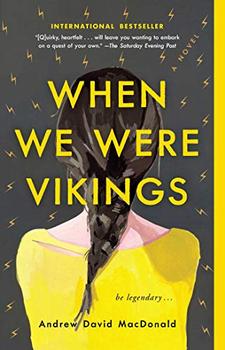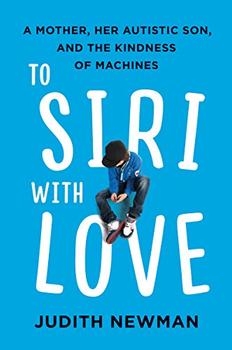Summary | Excerpt | Reading Guide | Discuss | Reviews | Beyond the book | Read-Alikes | Genres & Themes | Author Bio

In the tradition of Mark Haddon's The Curious Incident of the Dog in the Night-Time, Benjamin Ludwig's Ginny Moon gives us a novel written from the perspective of a child with autism.
Fourteen-year-old Ginny faces many challenges in life; not only is she autistic, but she was starved and beaten by her drug-abusing mother and subsequently removed from her home at the age of nine. She's been placed in at least three "forever homes," and has run away from each. Her current "forever parents" adopted her because they couldn't get pregnant at the time but eventually did conceive and now have an infant of their own. This places a new stress on their relationship with Ginny. Although her adopted parents attempt to help her have a normal life (e.g., helping her participate on a Special Olympics basketball team and taking her to flute lessons) she nevertheless does all she can to return to her birth mom, in spite of her love for her new sibling. The mystery of what exactly compels Ginny to return to her former home comprises much of the novel.
It's been a long time since I've read a first-person novel that made me care so much about the protagonist. Many books in recent years have featured young narrators in challenging circumstances, but Ginny Moon is absolutely one of the better written and most interesting of its type. Benjamin Ludwig has created a remarkable character in Ginny, making her realistic and completely bringing readers into her world. I experienced her frustration first-hand when she was unable to convey her inner fears to those who care about her. Her pain became my own and I wanted to hug her and explain her thoughts and feelings to those who just don't understand her.
One of the book's strongest features is how the author helps us view Ginny's parents, therapist, friends and teachers with a degree of clarity that eludes her because she is unable to pick up on the cues that most of us take into account during social interactions. Although Ginny doesn't understand how her actions impact those around her, readers readily grasp their exasperation through Ginny's own descriptions. I wanted to step into several scenes and play mediator between the parties involved, feeling like I was the only one perceiving each side's point-of-view. I think it's a rare novel that can elicit this kind of reaction from a reader, particularly when the story is narrated from a single point of view.
The plot, too, is intriguing and creative. On a few occasions, just when I felt that Ginny Moon was starting to lag or become predictable, the action took an unexpected but credible new direction, pulling me back into the narrative and keeping me hooked throughout. I was constantly on the edge of my seat as Ginny made decisions that were completely logical to her but that would obviously have negative repercussions for her down the road.
Some readers may have concerns that, given Ginny's history, the book could be dark or disturbing; this is not the case by any means, and it is, in fact, quite uplifting overall. Although Ginny makes passing references to the abuse she suffered at the hands of her birth-mother, this is not dwelled on or described in-depth. One knows very bad things have happened to her but that's not the point of the book, other than to make it clear why she was removed from her home and, oddly, why she's so desperate to get back to it in spite of being in a safe and loving environment.
Benjamin Ludwig completely captures his young protagonist, and as a result Ginny Moon is without doubt one of the finest novels I've read all year. I whole-heartedly recommend it for a wide audience, including young adult readers; book groups in particular will find much material for discussion.
![]() This review was originally published in The BookBrowse Review in December 2017, and has been updated for the
December 2018 edition.
Click here to go to this issue.
This review was originally published in The BookBrowse Review in December 2017, and has been updated for the
December 2018 edition.
Click here to go to this issue.

If you liked Ginny Moon, try these:

by Andrew David MacDonald
Published 2020
A heart-swelling debut for fans of The Silver Linings Playbook and The Curious Incident of the Dog in the Night-Time.

by Judith Newman
Published 2018
From the author of the viral New York Times op-ed column "To Siri with Love" comes a collection of touching, hilarious, and illuminating stories about life with a thirteen-year-old boy with autism that hold insights and revelations for us all.
Your guide toexceptional books
BookBrowse seeks out and recommends the best in contemporary fiction and nonfiction—books that not only engage and entertain but also deepen our understanding of ourselves and the world around us.